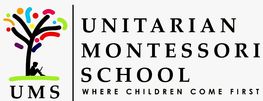Primary Class
Dr. Montessori observed that children are comfortable and secure in prepared environments where every object has its place and activities are performed in an orderly fashion.
Each primary class consists of a mixed age group. This grouping enables children to learn from and help each other without the pressure of competition.
Practical life activities such as buttoning, pouring, and washing enable the young child to acquire a wide range of skills necessary in building the child's self-confidence and self-image as a successful, capable person. The basic readiness skills and concepts necessary for reading, writing, and math are developed in a broadly based program which includes science, social studies, art, music, cooking, drama, physical education, movement. Through the continuous fostering of the child's curiosity, children take on increasing responsibility in the management of the classroom.
The range of activities in each classroom can satisfy both the youngest child's interest in concrete manipulative materials and the older child's increasing understanding of abstract concepts.
Our strong educational curriculum follows a 3-year cycle, which is implemented in the following areas of the classroom:
Practical Life — These exercises are designed to enhance concentration and focus through purposeful activity, including care of the environment, care of self, coordination of movement, and grace and courtesy toward others. These activities respond to the child’s need for movement and order, while appealing to the growing desire for independence and social relationships.
Sensorial — At this development stage, children learn very effectively through their senses. Our materials and activities stimulate sensory discovery and description, while exploiting the child’s natural desire to explore, classify, and order their surroundings. Through hands-on interaction, children learn concepts of colors, mass, width, length, temperature, texture and other physical properties of items in their classroom.
Math — Our primary math program uses carefully prepared tools that lead the child through a logical mathematical thought process, from concrete to abstract ideas. Manipulative materials assist the child in understanding concepts like linear counting, the decimal system, addition, subtraction, multiplication, and division.
Language — 3-6 age continues a sensitive period for language development, and our thoughtfully planned environment encourages growth in oral language, written expression, reading, and even grammar elements. For reading, the Montessori approach is phonics-based and highly sequential. We compliment this with appropriate materials for different types of learners. To promote expressive fluency, classroom life provides many opportunities to expand vocabulary and prepare for formal writing instruction.
Geography/Culture — Cultural exercises expose the child to geography, history, physical, and life science basics. The children gain an awareness of the world around them by exploring other countries, their customs, foods, languages, and wildlife. Through multicultural studies we lay a foundation of mutual understanding and tolerance. Due to the rich cultural diversity of our students and their families, we can provide first hand experience of different cultures around the globe.
Peace — Peace education consists of opportunities and experiences for children to develop an ability to understand and access peace within themselves, interact peacefully with others, and eventually engage in activities that create a peaceful planet.
Our strong educational curriculum follows a 3-year cycle, which is implemented in the following areas of the classroom:
Practical Life — These exercises are designed to enhance concentration and focus through purposeful activity, including care of the environment, care of self, coordination of movement, and grace and courtesy toward others. These activities respond to the child’s need for movement and order, while appealing to the growing desire for independence and social relationships.
Sensorial — At this development stage, children learn very effectively through their senses. Our materials and activities stimulate sensory discovery and description, while exploiting the child’s natural desire to explore, classify, and order their surroundings. Through hands-on interaction, children learn concepts of colors, mass, width, length, temperature, texture and other physical properties of items in their classroom.
Math — Our primary math program uses carefully prepared tools that lead the child through a logical mathematical thought process, from concrete to abstract ideas. Manipulative materials assist the child in understanding concepts like linear counting, the decimal system, addition, subtraction, multiplication, and division.
Language — 3-6 age continues a sensitive period for language development, and our thoughtfully planned environment encourages growth in oral language, written expression, reading, and even grammar elements. For reading, the Montessori approach is phonics-based and highly sequential. We compliment this with appropriate materials for different types of learners. To promote expressive fluency, classroom life provides many opportunities to expand vocabulary and prepare for formal writing instruction.
Geography/Culture — Cultural exercises expose the child to geography, history, physical, and life science basics. The children gain an awareness of the world around them by exploring other countries, their customs, foods, languages, and wildlife. Through multicultural studies we lay a foundation of mutual understanding and tolerance. Due to the rich cultural diversity of our students and their families, we can provide first hand experience of different cultures around the globe.
Peace — Peace education consists of opportunities and experiences for children to develop an ability to understand and access peace within themselves, interact peacefully with others, and eventually engage in activities that create a peaceful planet.
